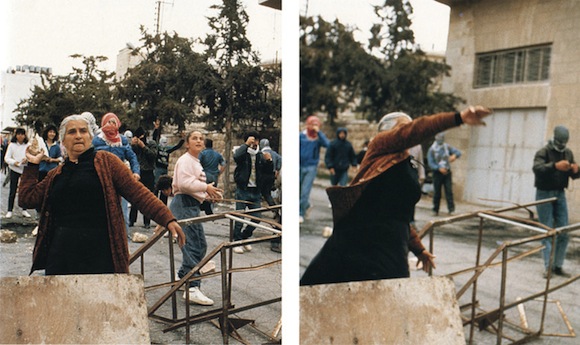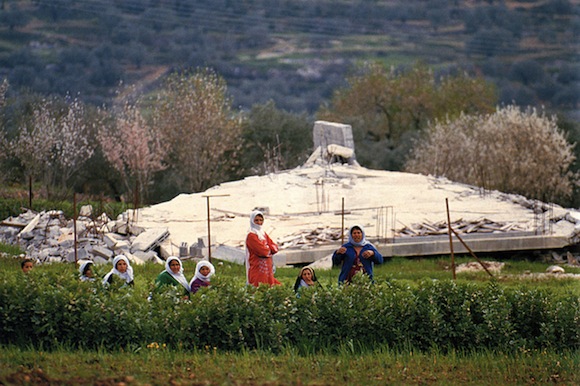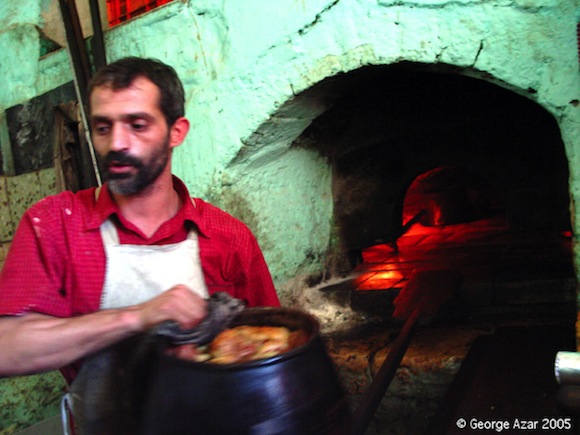Asmaa, a biological engineering student at a university in Tunis, chose to have her portrait taken in her bedroom. She sees her bedroom, which is covered with street-style graffiti, as the place that best reflects her personality. She comfortably sat on her bed with her legs folded and jokingly said, “I’ve always dreamed of discovering a new bacteria, now after the revolution, we have a new one every single day.”
I was in Tunisia a couple of months ago for my ongoing documentary photography project, “I Read I Write.” The project is about the importance of literacy in enriching the lives of Arab women and girls. It also addresses the barriers that stand in the way of their education. This project partially came in response to the 2005 UN Arab Human Development Report, which indicates that Arab countries collectively have one of the highest rates of female illiteracy in the world. Half of all Arab women are illiterate, compared to one-third of men. When I initially started the project, in 2009, I wanted to focus on illiteracy. But since I wanted to cover as many Arab countries as possible, I had to keep in mind the great variations in literacy rates between Arab states. Therefore, in each country I have covered so far I have tackled a different issue that influences women’s education, but which are common throughout the Arab world, such as illiteracy, educational reforms, drop out students, and access to education.
Tunisia is the fifth country I visited after Egypt, Kuwait, Jordan, and most recently Yemen. When I first started to research the topic for Tunisia, it was quite difficult to find the right angle to emphasize. Tunisian women have enjoyed better legal and political positions compared to their female counterparts in the rest of the region. Many secular freedoms are available, such as the right to file for divorce, the abolition of polygamy, and legal abortion. I wanted to find a viewpoint that would combine both the influence of educated women and the current post-revolution situation. When I arrived in the capital Tunis I planned to take photos of bloggers to show the power of words used by politically engaged women. But after long talks with blogger Fatma Riahi, known as Fatmarabica, she convinced me to change my focus since the media has over published that issue. Fatma, who is an activist and was arrested by the former regime because of her critical political writing, recommended that I look at university students, who are members in the students’ unions and are politically active. It immediately made sense to me since political and social activism for many young people often starts at university. Fatma introduced me to four exceptional women at different public university branches, in different fields, whom I ended up following for three weeks.
Luckily it was quite easy to work with Shams, Khouloud, Yasmine, and Asmaa. I agreed with the four of them to simply take photos of their day-to-day lives. I wanted to discover how young women would act to retain their rights under the leadership of the Islamist party Ennahda, which was recently elected into government. In my photos I show Khouloud attending a demonstration, Yasmine taking part in organizing a strike at her university during the day and then giving a concert at night, Shams reciting her street poem to her friends, and Asmaa taking part in a two day seminar about unemployment. Through them I explored their concern about the future of their country, and the vast changes their society is going through after the uprising, which was the first in the “Arab Spring.”
The photos published here were taken while working on this project, but with my smartphone camera in between taking photos with my professional camera. (The documentary photos that are part of my “I Read, I Write” project will be posted later on my website.) For me, the phone camera is mainly for enjoyment. I adore the stress-free process where I don’t impose any pressure on myself to come up with the best images. I post the images on my Instagram account using filters and they end up being a kind of photo diary of the amazing people I meet. Fortunately the people in Tunis were really warm and didn’t have any problem with being photographed. It was, however, less intimidating to approach random people first with my phone camera rather than my professional camera. Youth in Tunis are notably active on social media platforms. They would ask me to email the photos to them, and when I asked their permission to post the images online they would straightway say “of course.”
My assignment in Tunis was really different and rich. I was quite impressed with how strong, outspoken, and politicized Tunisian women are. In fact, they made me a little nostalgic for my own university days when my friends and I were fearless and believed that we could change the world. The young women I met are definitely making a difference and are determined to bring about change. I hope they can keep this spirit alive during the challenges ahead.
![[Asmaa, a student of biological engineering in Tunis, poses for a photo in her bedroom. It reads, \"The people want the fall of the regime.” Photo by Laura Boushnak.]](https://kms.jadaliyya.com/Images/357x383xo/Boushnak_AsmaBedroom_LargeForPost.jpg)










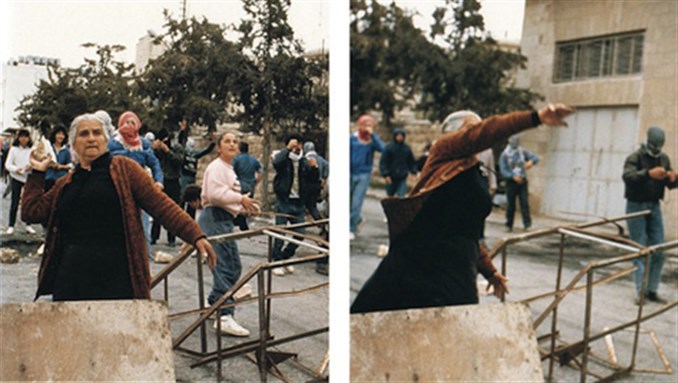
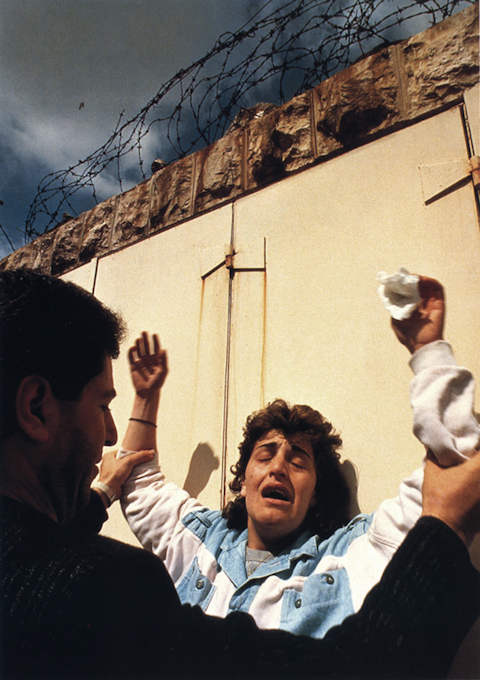 [
[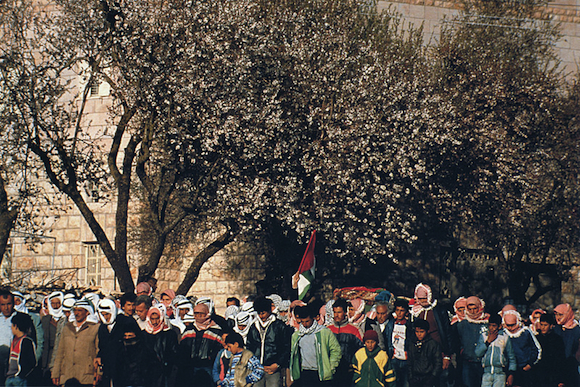 [Khadr’s funeral procession winds through his village. Photo by George Azar.]
[Khadr’s funeral procession winds through his village. Photo by George Azar.]